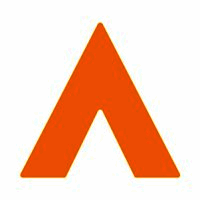Description

Custom Panels & Portals

QuestionPro
Comprehensive Overview: Custom Panels & Portals vs QuestionPro
Custom Panels & Portals, offered by QuestionPro, are advanced tools designed to gather insights and feedback efficiently from specific groups of people. They cater to various industries and research needs, offering robust solutions for businesses and researchers. Here is a comprehensive overview based on the provided categories:
a) Primary Functions and Target Markets
Custom Panels:
- Primary Functions: Custom panels allow organizations to build and manage a dedicated group of pre-profiled respondents. These respondents can be surveyed regularly, providing quick and reliable insights. The primary functions include managing panelist recruitment, profiling, sampling, and engagement. They are often used for longitudinal studies, where consistent feedback over time is essential.
- Target Markets: The target markets for custom panels are typically medium to large enterprises, market research agencies, and any organization that requires regular feedback from a specific audience segment, such as consumer goods companies, healthcare providers, and educational institutions.
Portals:
- Primary Functions: Portals serve as a centralized hub for conducting surveys, collecting data, and sharing results. They are designed to simplify the data collection process and improve the efficiency of insights generation by providing respondents with an organized platform to participate in surveys and view available research projects.
- Target Markets: The target audience includes organizations needing a centralized solution for managing multiple research initiatives, such as large corporations, governmental agencies, and academic institutions.
b) Market Share and User Base Comparison
In terms of overall market share and user base, specifics numbers and market data might not be publicly available as they often depend on the proprietary data maintained by QuestionPro or third-party industry analytics firms. However, generally speaking:
-
Custom Panels: These tend to have a broad appeal, particularly within sectors that conduct frequent research. The user base typically includes larger enterprises that prioritize in-depth, ongoing research needs.
-
Portals: These are frequently used by a wide range of organizations due to their versatility. The user base is diverse, including both large companies and smaller organizations that require comprehensive survey administration tools.
c) Key Differentiating Factors
Custom Panels:
- Longitudinal Data Collection: Custom panels are particularly suited for longitudinal studies where tracking changes over time is crucial.
- High Engagement Levels: They focus on building a community of engaged and pre-profiled panelists, which often leads to higher response rates and better quality data.
- Customization and Control: Organizations have significant control over survey participant selection and can tailor panel attributes to fit specific research requirements.
Portals:
- Integration and Accessibility: Portals offer easy integration with other QuestionPro tools and external systems, providing a seamless user experience for data collection and analysis.
- Centralized Management: They centralize all data collection activities, offering organizations straightforward management of multiple survey projects via a single platform.
- Versatile Use Cases: Suitable for diverse types of research, portals offer various functionalities, including quick polls, detailed surveys, and comprehensive data reporting features.
Both products serve different but complementary functions, allowing organizations to choose solutions that best match their specific research objectives and operational needs.
Contact Info

Year founded :
Not Available
Not Available
Not Available
Not Available
Not Available

Year founded :
2005
Not Available
Not Available
United States
Not Available
Feature Similarity Breakdown: Custom Panels & Portals, QuestionPro
When comparing Custom Panels & Portals with QuestionPro, it's essential to understand the features these platforms typically offer for managing and deploying surveys, as well as community engagement and data collection tools. Here’s a breakdown:
a) Core Features in Common
-
Survey Design and Distribution:
- Both platforms likely offer robust tools for survey creation, including various question types, logic, and customization options.
- They also provide multiple distribution channels such as email, social media, and embedded links.
-
Data Collection and Analysis:
- Both provide mechanisms for collecting data efficiently and offer analytics tools to derive insights.
- Features like real-time data reporting, dashboard views, and integrations with analytics platforms are common.
-
Community Management:
- The ability to build and manage a panel or community of respondents for continuous engagement.
- Features might include panel recruitment, profiling, and segmentation capabilities.
-
Customization and Branding:
- Both platforms allow for extensive customization to align with the organization's brand, from survey design to portal interfaces.
-
Security and Compliance:
- Robust data security measures, including encryption and compliance with regulations like GDPR, are expected to be standard.
b) Comparison of User Interfaces
-
Custom Panels & Portals:
- These might offer a more customizable user interface tailored to specific client needs with flexibility in design elements.
- Interfaces could be more bespoke, often requiring more initial setup and expertise to fully utilize.
-
QuestionPro:
- Typically, QuestionPro's interface is user-friendly and designed for ease of use right out of the box.
- It provides intuitive drag-and-drop functionality for survey creation and straightforward navigation through features.
- The design might focus more on enhancing the user experience with a clean, modern layout.
c) Unique Features
-
Custom Panels & Portals:
- Highly Tailored Solutions: These platforms might offer more tailored solutions for niche applications, with bespoke functionalities designed for specific industries.
- Advanced Customization: Some might allow for deep custom coding or integrations with specific third-party platforms that are not as readily available in more standardized solutions.
-
QuestionPro:
- Comprehensive Survey Library: It often includes a vast library of survey templates and question types to cater to various domains and research needs.
- AI-Powered Insights: QuestionPro might offer advanced AI tools for predictive analytics that help in deriving insights from the data automatically.
- Community Feedback Tools: Features for managing and engaging with communities, like gamification elements, might set it apart.
Both platforms provide a robust set of tools, but the choice between them often comes down to specific organizational needs, budget, and whether a more standardized or highly customized solution is required.
Features

Not Available

Not Available
Best Fit Use Cases: Custom Panels & Portals, QuestionPro
a) For what types of businesses or projects is Custom Panels & Portals the best choice?
Custom Panels & Portals is an ideal choice for businesses and projects that require continuous insights from a specific group of respondents. These are particularly valuable for:
-
Market Research Firms: Companies that need to conduct frequent and varied research can greatly benefit from a dedicated panel of respondents to get faster, more reliable insights.
-
Corporate Enterprises: Large companies seeking to understand customer satisfaction, employee feedback, or product feedback can leverage panels to access targeted feedback quickly.
-
Consumer-Focused Businesses: Brands in sectors like retail, technology, or consumer goods that need direct consumer insights to guide product development and marketing strategies.
-
Niche Markets: Businesses that operate within niche industries benefit from panels as they can build and maintain lists of industry-specific participants who provide highly relevant data.
-
Academic and Government Research Organizations: For institutions that regularly conduct studies and need specific demographics or anonymous contributors during sensitive projects.
b) In what scenarios would QuestionPro be the preferred option?
QuestionPro is often the preferred option in the following scenarios:
-
Comprehensive Survey Needs: For organizations requiring a robust platform that can handle everything from basic surveys to complex research studies, including features like branching, logic, and extensive reporting.
-
Longitudinal Studies: Organizations conducting studies over time will find QuestionPro’s capabilities ideal for tracking changes and trends.
-
Multi-Channel Distribution: Users needing to distribute surveys across various platforms and gather integrated responses from web, email, social media, and mobile.
-
Customized Experience: Businesses that value customization in survey distribution, presentation, and analysis, allowing them to tailor the experience for both survey creators and respondents.
-
Integration and Scalability Needs: Companies needing a solution that integrates smoothly with other platforms (CRM, databases) and scales as business needs evolve.
d) How do these products cater to different industry verticals or company sizes?
-
Industry Verticals: Different industries have unique requirements and QuestionPro customizes its panels and portals to cater to these needs. For example:
- Healthcare: Panels can be tailored to collect patient feedback or professional insights, enabling compliance with industry-specific regulations.
- Education: Used for continuous engagement with alumni or student bodies to gather feedback and inform program development.
- Retail: Facilitates consumer behavior studies to develop targeted marketing strategies.
-
Company Sizes:
- Small Businesses: Benefit from QuestionPro’s user-friendly interface and affordability, making it accessible even with limited budgets.
- Medium to Large Enterprises: Take advantage of advanced features such as integrations with existing enterprise systems, real-time analytics, and segmented reporting.
By offering scalable solutions, QuestionPro ensures that companies of any size can effectively gauge and respond to feedback, driving better decision-making across departments and projects.
Pricing

Pricing Not Available

Pricing Not Available
Metrics History
Metrics History
Comparing undefined across companies
Conclusion & Final Verdict: Custom Panels & Portals vs QuestionPro
To provide a comprehensive conclusion and final verdict between Custom Panels & Portals and QuestionPro, we need to evaluate each product based on overall value, assess their pros and cons, and offer specific recommendations for potential users.
Conclusion and Final Verdict
a) Best Overall Value:
Considering all factors such as features, cost, ease of use, support, and scalability, QuestionPro often offers the best overall value for a broad range of users, especially those seeking an all-in-one survey and research software solution. Its comprehensive feature set, including advanced analytics and diverse survey options, caters to businesses of all sizes effectively. However, specialized requirements or niche markets may find Custom Panels & Portals valuable for its tailored community management and engagement features.
b) Pros and Cons:
QuestionPro:
-
Pros:
- Wide range of survey templates and types.
- Advanced analytics and reporting tools.
- Strong customer support and extensive resource library.
- Seamless integration with third-party tools.
- Scalable solutions suitable for various business sizes.
-
Cons:
- Higher cost for premium features.
- Steeper learning curve for new users unfamiliar with survey software.
- May offer more features than necessary for small-scale projects.
Custom Panels & Portals:
-
Pros:
- Highly customizable for specific community and panel management.
- Focused tools for engagement and community-building.
- Strong on data privacy and participant management.
- Suitable for organizations requiring deep participant insights.
-
Cons:
- Limited in broader survey and analytics features compared to QuestionPro.
- Potentially higher setup and customization costs.
- May require more technical expertise to maximize potential.
c) Recommendations for Users:
-
For Organizations Focused on Surveys and Data Analysis: Users who prioritize comprehensive survey capabilities and data analytics will find QuestionPro to be an excellent choice. Its robust feature set supports both full-scale organizational research and agile project-specific surveys.
-
For Community-Centric Enterprises: Businesses and communities that need specialized panel management and engage deeply with their participants may prefer Custom Panels & Portals. This product is ideal for ongoing participant interaction and engagement-driven insights.
-
Budget Considerations and Use Case Scope: Small businesses or users with a limited budget and specific needs should carefully consider the cost-benefit ratio of each tool. QuestionPro may provide unnecessary features for smaller-scale projects, while Custom Panels could require higher upfront costs.
In conclusion, both products have distinct strengths that cater to different audience needs. Users must assess their specific requirements, such as survey complexity, community engagement needs, budget constraints, and technical capabilities, before making a decision.
Add to compare
Add similar companies



